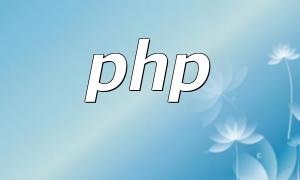With the rapid growth of short video platforms, more developers are turning to open APIs to integrate user content and platform data. Kuaishou, as one of China’s leading short video platforms, offers a rich API for third-party developers. This article walks you through how to build a PHP framework for calling Kuaishou's API, helping you quickly connect and retrieve platform data.
The Kuaishou Open API provides developers with a standardized interface to access a wide range of data, including music libraries, user profiles, comments, and video content. The API is available in multiple versions to suit different integration scenarios and performance requirements.
Below is a basic example of how to implement a PHP-based framework for calling the Kuaishou API:
// Include the SDK file
require_once 'sdk/src/Core/KsOpenApiClient.php';
// Set user configuration
$config = array(
'ak' => 'your ak',
'sk' => 'your sk'
);
// Create the API client instance
$OpenApiClient = new KsOpenApiClient($config);
// Set business request parameters
$params = array('pid' => 'your pid', 'tid' => 'your tid');
// Call the specific API endpoint
$result = $OpenApiClient->invoke($apiPath, $params);
The example above is structured around four core parts: user configuration, API client instance creation, setting request parameters, and making the actual API call.
Before calling the Kuaishou API, include the SDK and define your authentication keys. The AppKey (AK) and SecretKey (SK) are used to identify and authorize your application.
The client instance is central to all interactions with the Kuaishou API. It is initialized with the configuration data and manages request execution.
Each API endpoint requires specific parameters. These must be defined based on the interface you intend to call. Parameter details can be found in Kuaishou's API documentation.
Once everything is configured, you can call the API by specifying the endpoint path and parameters. The returned response can then be handled according to your application’s logic.
To ensure secure communication and protect data integrity, Kuaishou requires several authentication measures when using its API. Below are key authentication practices:
Most Kuaishou APIs require OAuth 2.0 for user authorization. Your application must obtain proper user consent and access tokens before making certain requests.
All requests must be signed using a specific algorithm based on your SecretKey and the parameters. This helps ensure data is secure and unaltered in transit.
Restricting IP addresses, setting rate limits, and managing API usage quotas are all ways to enforce access control and protect your API from misuse.
This guide introduced how to use PHP to create a functional Kuaishou API integration. By understanding the framework, authentication methods, and calling conventions, developers can confidently incorporate Kuaishou’s data into their applications to enhance user experience and system capabilities.
Related Tags:
API








